KANDAHAR PROVINCE, Afghanistan -- On the streets of Kandahar walks a 21-year-old, elite Afghan soldier armed with only pen, paper and a voice recorder. His name is Shakeel Ahmed and he's taking requests for a nearby radio station called "Radio Heela," or "Radio Hope" in Kandahar province.
Ahmed is an Afghan National Army (ANA) Commando trained in Afghan Information Dissemination Operations (AIDO), and he is what other commandos call their "roving reporter." He's quick with his microphone - one moment asking a shopkeeper who their favorite Afghan poet is; the next discussing Pashtu music with a taxi driver who had slowed to say "hi" to someone at the bazaar.
"Much of rural Afghanistan is without electricity, without television," said Ahmed, who has a bachelors degree in science and hails from the country's eastern Nangarhar province. "Radio is the entertainment for people in Kandahar."
THE PULSE OF THE PEOPLE
"Do you listen to the radio'" Ahmed asks shopkeepers. If they reply "no" or that they don't own a radio, he hands them one from a pack the commandos carry.
Passing out these solar and hand-crank radios goes a long way toward the spread of Afghan culture and national pride, he said.
In the meantime, he tries to discover what they'd like to hear - be it a song, a poem or just to say hello to a friend who could be listening.
The rest of the other commandos are usually passing out their radios to children and shopkeepers, as well as passing out small blue and white papers spreading the word of FM 95.5, "Radio Heela."
With a range of more than 120 kilometers, "Radio Heela," operated by Afghans with citizen input delivered by the AIDO troops in Kandahar, broadcasts the music and literature its listener's request.
"When the Taliban was in power, we weren't able to listen to music," said Mohammed Mosa, a cellular phone shop owner in Kandahar. "Today we like to listen to the music and literature programs [on 'Radio Heela']."
"Many already know about 'Radio Heela,'" said 20-year-old AIDO-trained commando, Khaliq Dad. "It's the only station they can pick up with a clear signal."
For Dad, the spread of Afghan culture through convenient forms of media like radio is no less important in Afghanistan than in any other country.
"It's an international idea on which Afghanistan should be built," he said, "and so it is my duty to help build Afghanistan around the pulse of the people."
TAKING REQUESTS
Deejay Zazai and station manager Azad, both from Paktia province, run the station from a small, soundproof room just outside of Kandahar Airfield. Using just two computers, some poetry books and nearly 1,000 hours of music, together with input gathered by the commandos, they transmit the sounds and life of Kandahar province.
Zazai produces a daily call-in program where listeners can phone the station with requests. Some even use the chance to recite their own poetry.
Between their requested songs of Pashtu, Farsi or Indian origin, Ahmed's field reports float into the sonic soundscape of Zazai's live request program.
A Wednesday call-in program relays the small but sure voice of a shopkeeper named Lutfallah. He says he'd like to hear "Radio Heela" work on a program for Afghan youth.
What the roving report doesn't show are the many children who flock to the commandos passing out the small radios.
Lutfallah was overjoyed to see someone who could get a message through to the staff at "Radio Heela."
"I work in the shop all day. I live here," he said. "I always listen to the poetry and call-in program. My radio is always on."
He had been trying to call the station, he said, but could never get through because the lines were all busy.
"That sounds about right," said station manager Azad.
Call-in requests have been growing since the station began operating nearly four months ago in August 2010. Adding to that list is the man-on-the-street requests from shop owners like Lutfallah, who wrote down his song requests for the AIDO-trained commandos.
ABUNDANT RESPONSE
The telephone responses alone have been overwhelming, averaging more than 300 calls per day, Azad said. This leaves them plenty to do supporting requests for specific songs and poems to providing biographical sketches of Afghan poets like Hanzala of Badghis or Khushal Khan Khattak.
"Once a week we'll put out a biography," Azad said, "and every day from two to three in the afternoon we take poems of different poets and then read it with background music and then give a chance to the audience so that they can call and respond."
It's sometimes difficult producing these shows, he said, because of the research involved.
"A lot of times we cannot answer the phones because of all we have to do between the researching, recording and sorting of the lists of requests commandos deliver," Zazai said.
But these are just the nuts and bolts of running a radio station for Afghan citizens. What makes it all worthwhile are the moments of extraordinary hope in their time behind the mic at 95.5, "Radio Heela."
"Especially when I ask the callers," Zazai said, "'What's your message for the other listeners'' and they start singing me a good song which is about the country, about the peace, you know I love that part and I'm really proud."
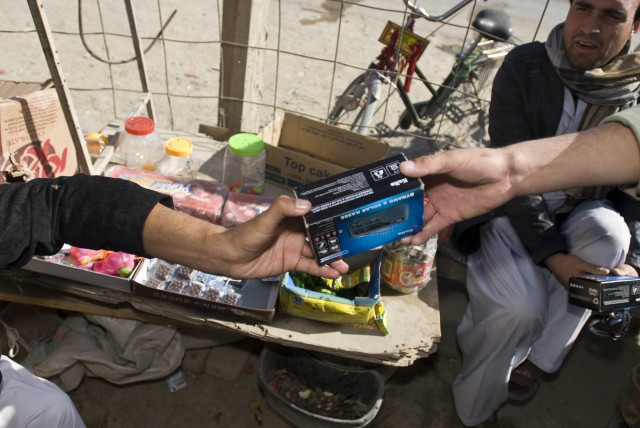
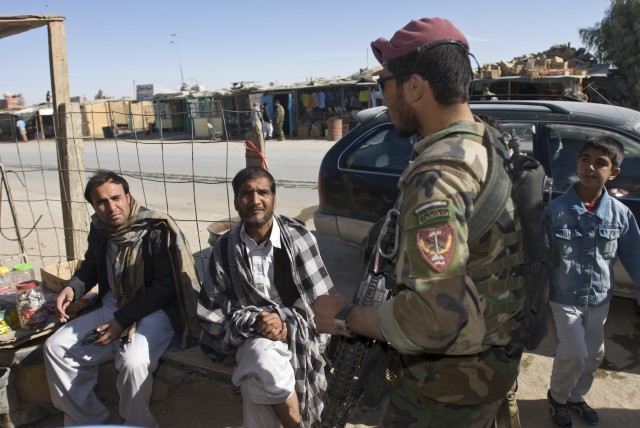

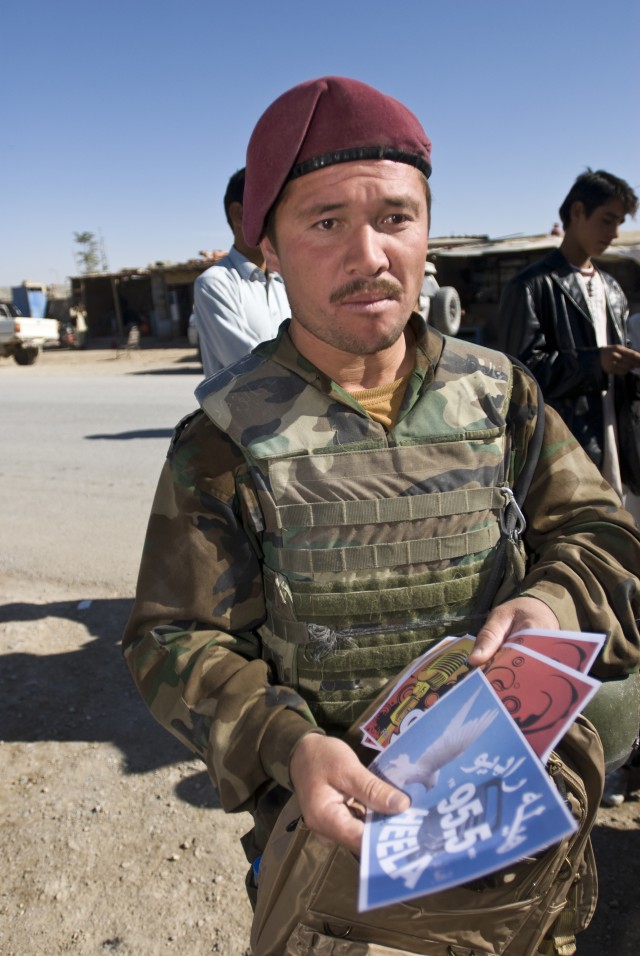
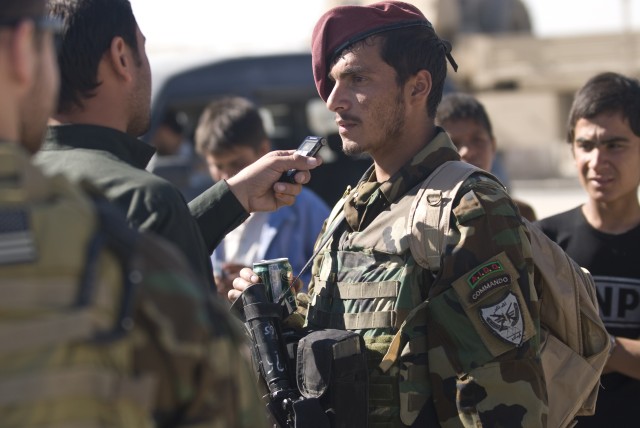
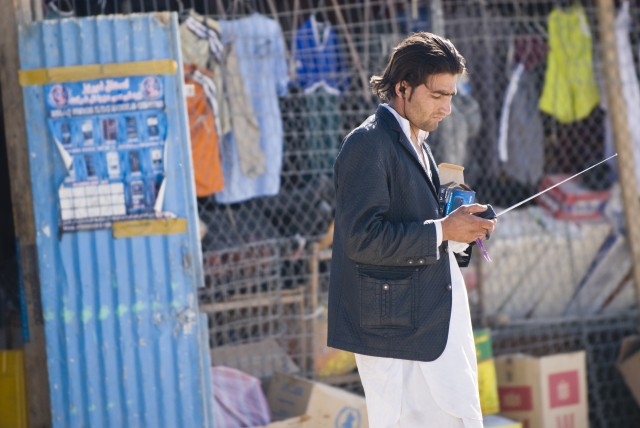
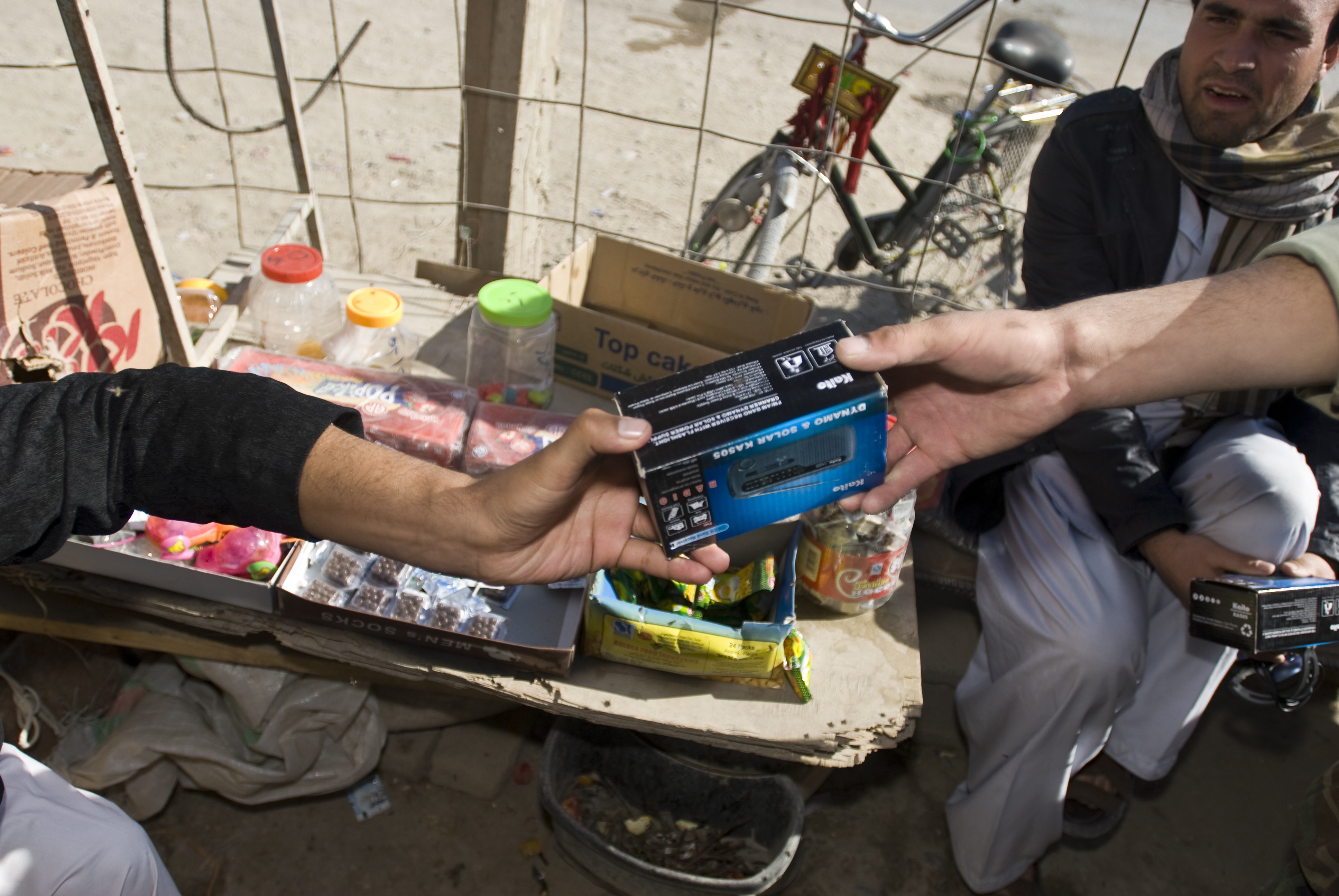
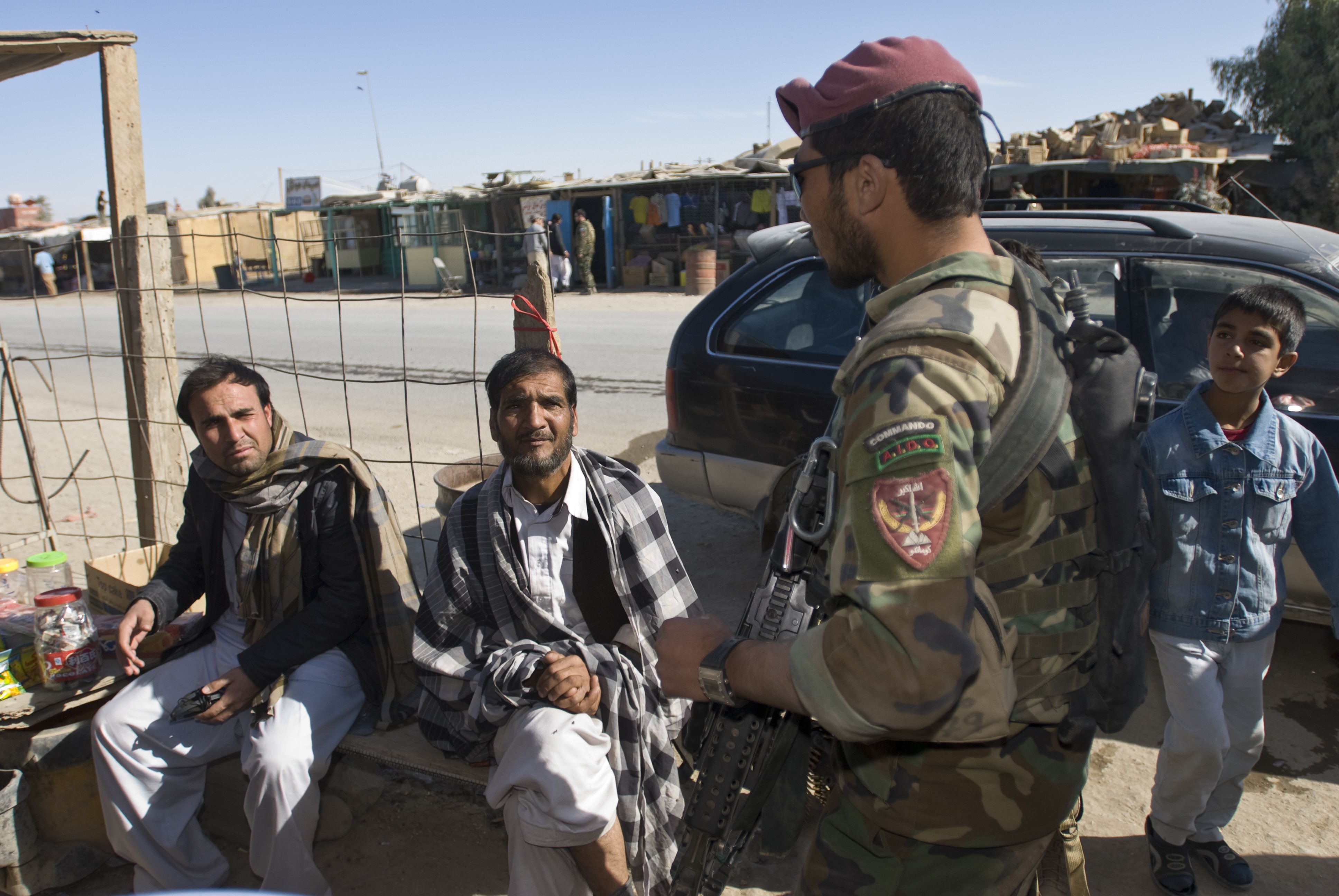
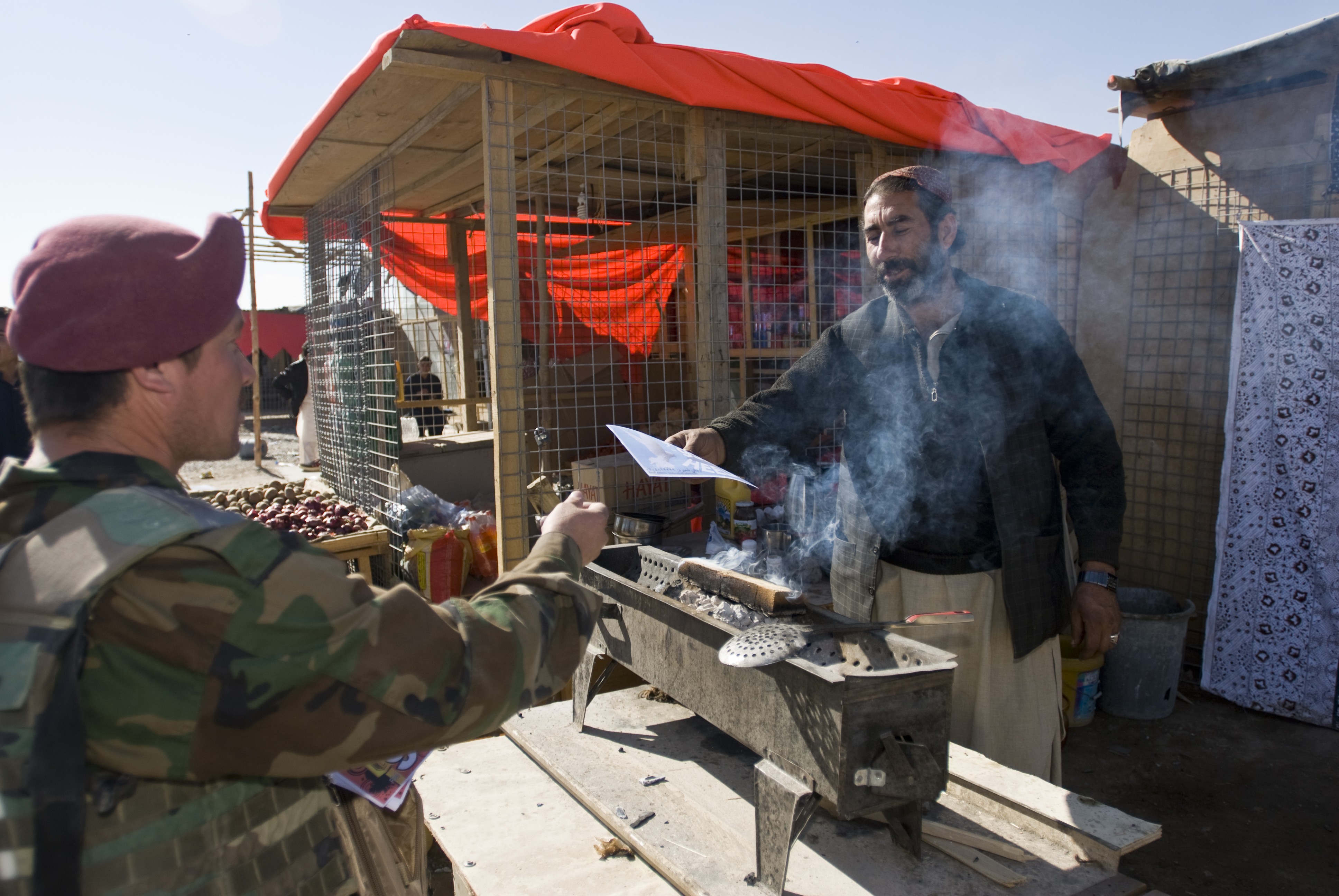

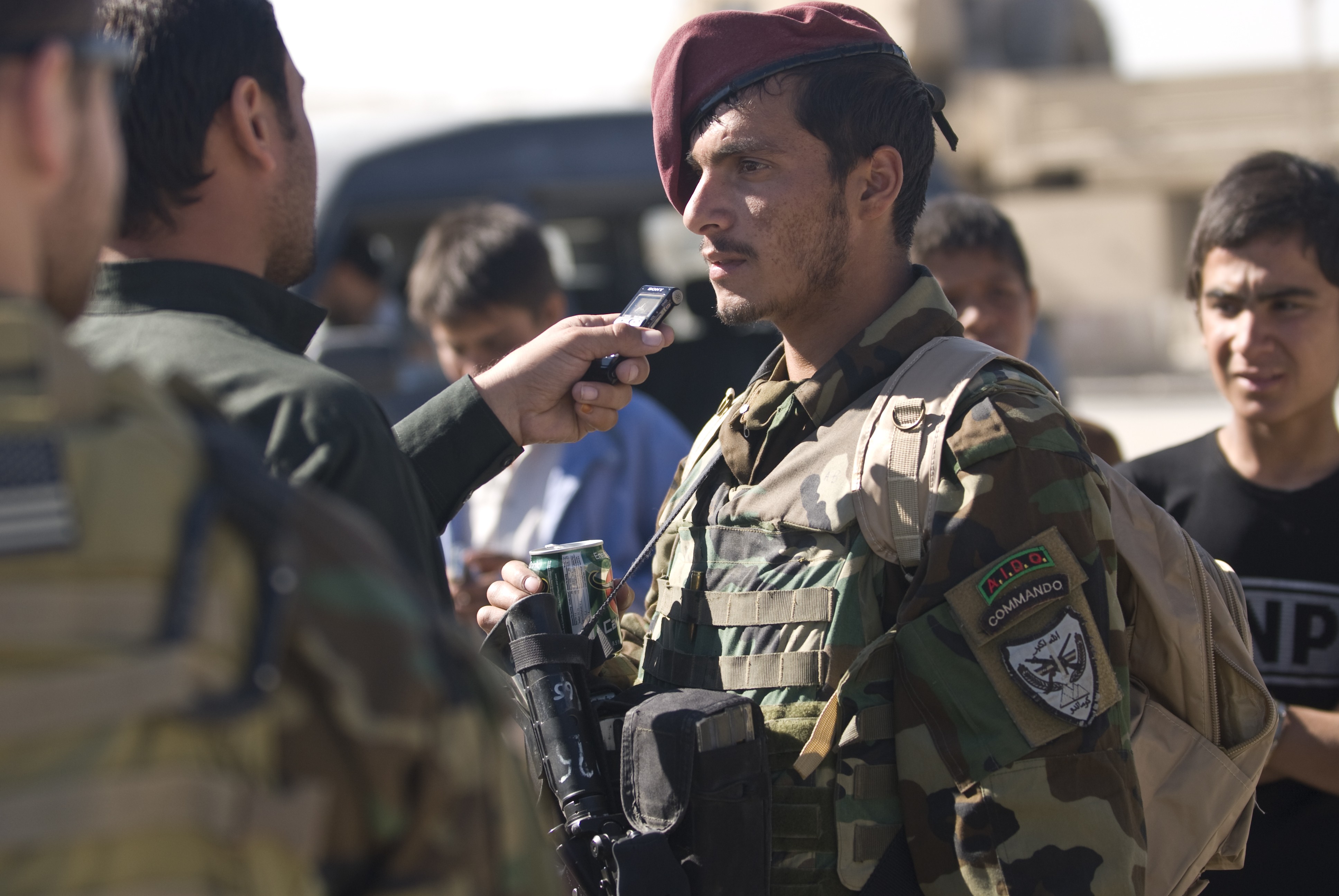
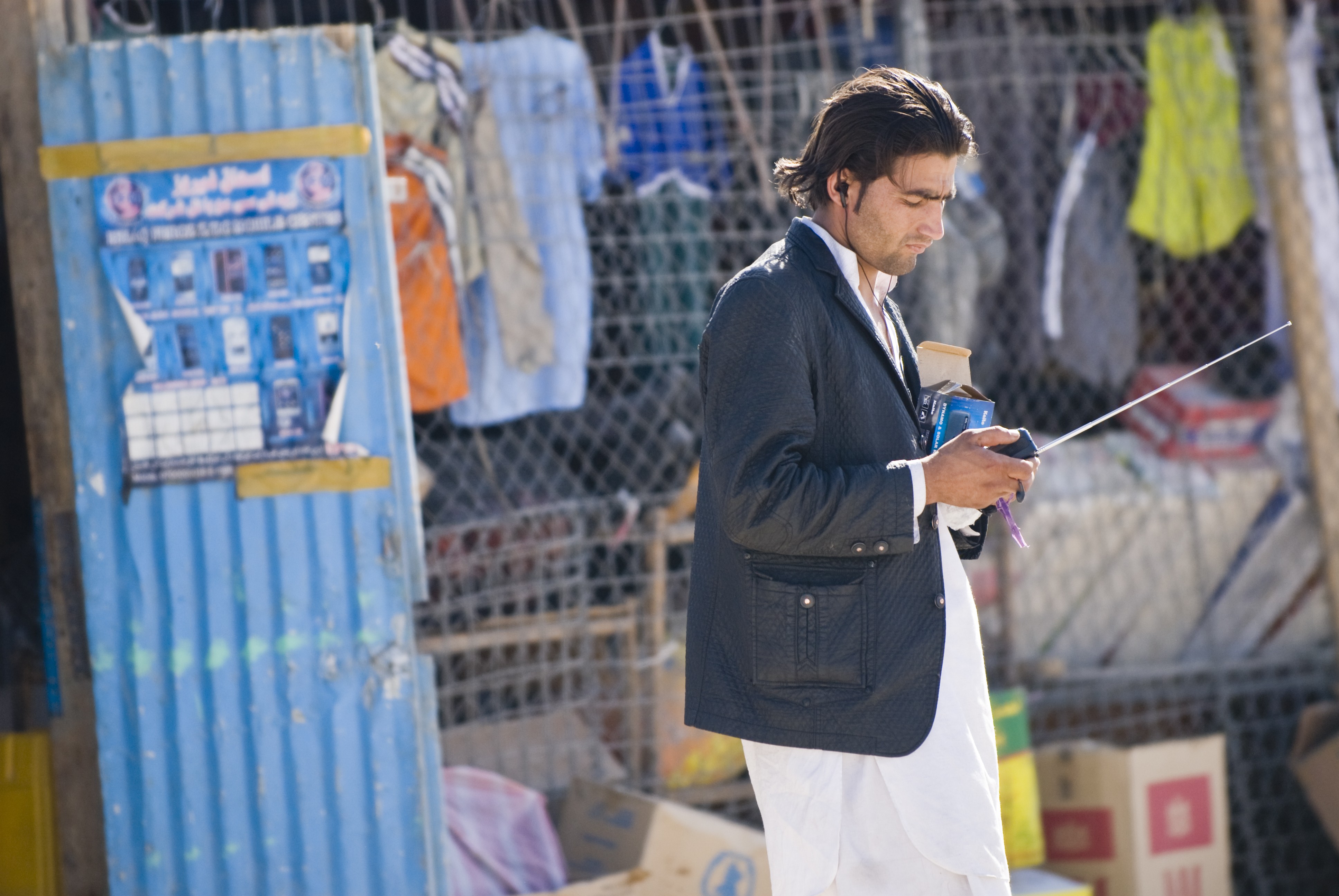
Social Sharing